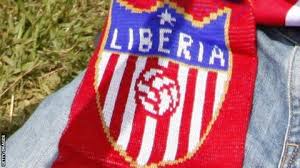By Paul Nicholson
April 16 – The election for the new president of the Liberian FA (LFA) at its 34th Annual Congress was dramatically suspended at the weekend after the first round of voting when a court order was issued questioning the eligibility of Musa Shannon, already a serving LFA vice president.
Shannon has previously admitted taking $1,500 from funds FIFA sent to the LFA for Ebola assistance. That money was distributed by LFA president Musa Bility. Shannon said he had taken that money for personal use, but had repaid it via his LFA stipend.
The court submission was filed by one of the presidential candidates George Solo but was not enacted until the first round of votes had been taken and the votes had been counted.
LFA rules say there has to be a majority of 17 plus 1 votes – Mustapha Raji had 16 votes, Musa Shannon 13 votes, while Solo had 5 votes.
Solo’s claim is that Shannon – who is heavily supported by Bility – should have been disqualified based on integrity checks that would have highlighted the Ebola money discrepancies.
With the first round of voting over, Bility declared there should be a run-off between Shannon and Raji. The court order prevented that happening but Bility said that the election will be concluded at a later date with a vote between the two remaining candidates.
What is not clear is whether that is allowed within LFA statutes. What is more likely is that a new electoral process will need to be held, from the start, and the floor opened to new candidates. A number of other potential candidates have already said they would stand, including Rochell Woodson, the LFA whistleblower who was going to stand for the presidency but pulled out complaining that the election was following neither FIFA or LFA electoral rules or statutes.
The election for the LFA president was already mired in controversy and political intervention from new national president George Weah’s government.
While Bility had been pushing for what would effectively be his proxy in Musa Shannon, Weah’s government wanted Nigerian Raji inserted into the top slot at the LFA. As a Nigerian national it is not clear whether Raji would be eligible to hold the position of elected. This did not stop Weah dispatching government officials to lobby for him.
as in the case of Musa Bility in FIFA 2015 elections.
Parliamentary representative Muna Pelham Youngblood, a close and increasingly controversial political confidant of President George Weah, met the Women Football Club Presidents at their Camp Johnson road headquarters informing them that she was on a mission from the President with a direct mandate telling them to vote for Raji.
She said that Weah would not work with any of the others contesting the elections. Weah, who is a previous FIFA world footballer of the year, has seemingly broken one of the principal rules of FIFA governance in terms of using his governmental influence to dictate the direction of the LFA’s administration.
FIFA had been warned of the election irregularities and was superficially monitoring the situation having asked LFA general secretary Emanuel Deah to respond to allegations of breaches of the electoral code and statutes.
His responses were clearly convincing enough for FIFA to allow the election to take place, though they were obviously not strong enough to prevent the Liberian judicial system to step in to the fray. However, FIFA’s vigilance in Liberia’s case again seems to follow its interests across the rest of Africa, where preferred elected officials’ credentials are judged by who they can be relied upon to support at international level, rather than what they do at local level.
Contact the writer of this story at moc.l1714167120labto1714167120ofdlr1714167120owedi1714167120sni@n1714167120osloh1714167120cin.l1714167120uap1714167120

